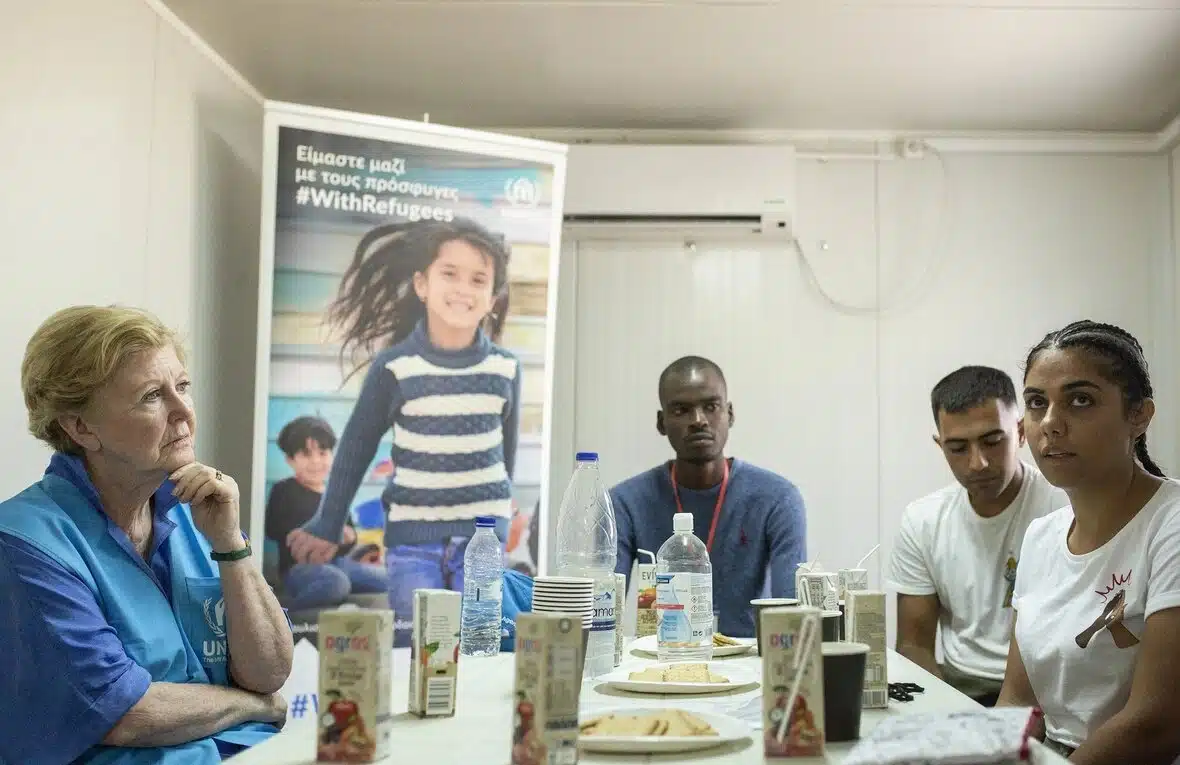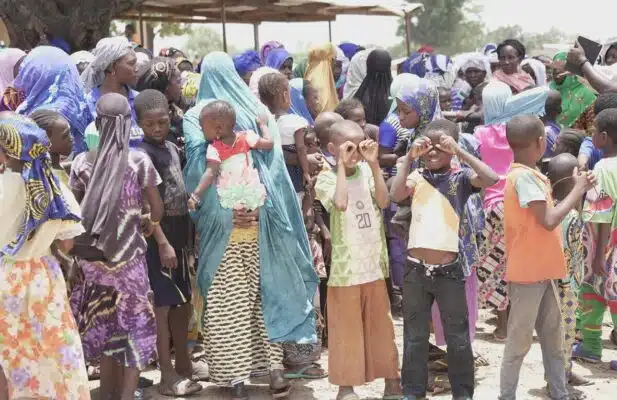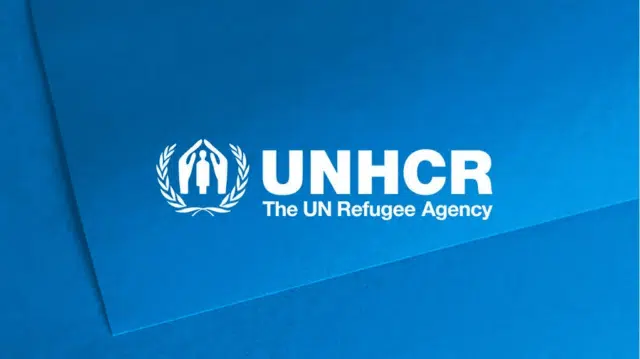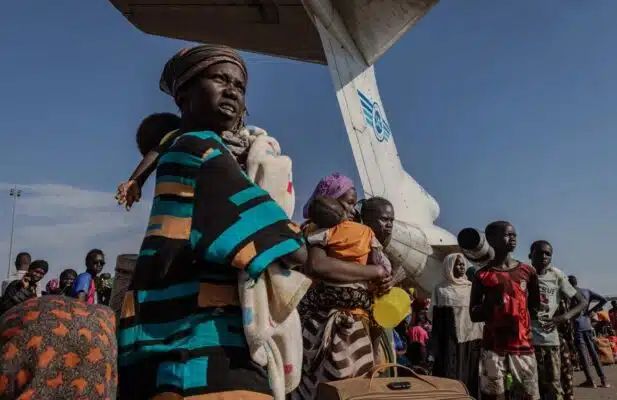
UNHCR Assistant High Commissioner for Protection Gillian Triggs talking to a group of asylum-seekers in the Closed Controlled Access Centre on Samos island, Greece. © UNHCR/Socrates Baltagiannis
The UN Refugee Agency’s Assistant High Commissioner for Protection, Gillian Triggs, concluded a four-day visit to Greece today, where she engaged on issues relating to access to territory and asylum, search-and-rescue at sea and on land, and the integration of refugees and asylum-seekers in the country.
In Athens, Triggs met with officials from the Ministries of Migration and Asylum, Foreign Affairs, Maritime Affairs and Citizen Protection, and held consultations with refugees and asylum-seekers, and civil society organizations.
The visit comes more than a month after one of the worst shipwrecks in the Mediterranean in recent years. “The Pylos tragedy and the other devastating tragedies in the Mediterranean underscore the primacy of saving lives and protecting the rights of people forced to flee. This was my message to the authorities,” said Triggs.
“We had very open exchanges on the criticality of safeguarding access to territory and asylum, ensuring a predictable and well-coordinated search-and-rescue system, and the need for responsibility-sharing and solidarity measures among States.”
Triggs also raised reports of summary forced returns, an issue which has been of concern for several years, highlighting the need for effective investigations and preventive and remedial action.
Noting that “Greece and other countries at the external borders of the EU face significant pressures in responding to irregular movements,” Triggs reiterated “the need to move towards a border and asylum management system that works for all States, while ensuring that those who seek asylum can access it and refugees are protected.”
Beyond the EU, Triggs also highlighted the need to address the root causes and drivers of displacement, through a routes-based approach which also ensures solid assistance to countries of origin and transit.
Triggs cited the establishment of the National Emergency Response Mechanism for Unaccompanied Minors as a best practice for the protection of children, and the relocation of unaccompanied children from Greece to various countries across Europe, as an example of responsibility-sharing in action.
She noted the need for safe pathways and schemes for both refugees and migrants, which would offer an alternative to the perilous journeys that desperate and vulnerable people are increasingly forced to take.
During her visit, Triggs also visited the Closed Controlled Access Centre on the island of Samos, which currently hosts some 560 people, and heard directly from asylum-seekers hosted there.
While efforts have been made to improve conditions, the centre remains a highly securitized environment, and asylum-seekers and refugees face difficulties, especially in accessing critical services such as healthcare and psychological support. There is also a need to improve the provision of information by the centre’s management for those staying there.
Triggs also heard from civil society organizations who described the essential services they provide and explained the difficulties they experienced in their operations. Triggs conveyed UNHCR’s “praise for the dedication and hard work of NGOs in Greece” and renewed the agency’s commitment to support civil society in its activities for the protection of refugees.
Nationwide, Greece hosts more than 68,000 refugees and Triggs appreciated the efforts made towards enhancing the integration of refugees in the country, in line with its National Integration Strategy. Triggs urged that these initiatives – which enable refugees to contribute to the communities hosting them – continue. These include access to employment, addressing skills gaps, and ensuring timely provision of documentation and simplified procedures and requirements.
Notes to the editor:
More than 10,000 people have arrived irregularly to Greece on land or by sea since the beginning of the year. While the numbers of sea and land arrivals have decreased since the peak in 2015, in which almost 900,000 made their way to the country, most new arrivals are from major refugee situations. See our operational data portal for more information.
For more information on this topic, please contact:
- In Athens, Evanthia Savvopoulou, savvopou@unhcr.org, +30 694 868 7704
- In Geneva, Louise Donovan, donovan@unhcr.org , +41 79 217 30 58
- In Geneva, Shabia Mantoo: mantoo@unhcr.org, +41 79 337 7650





